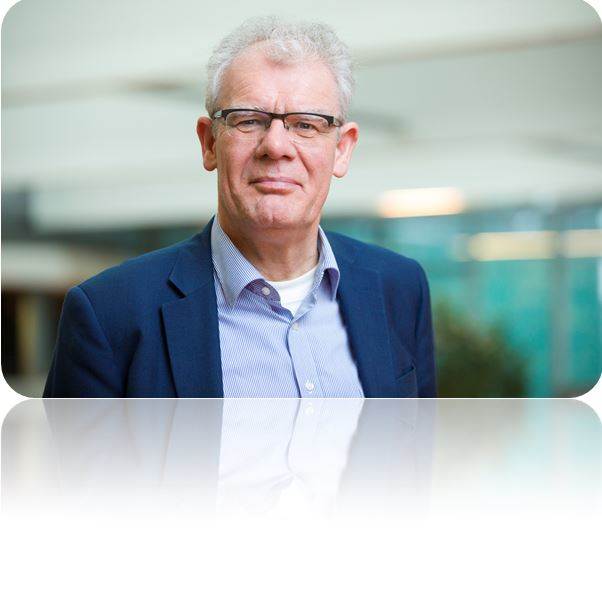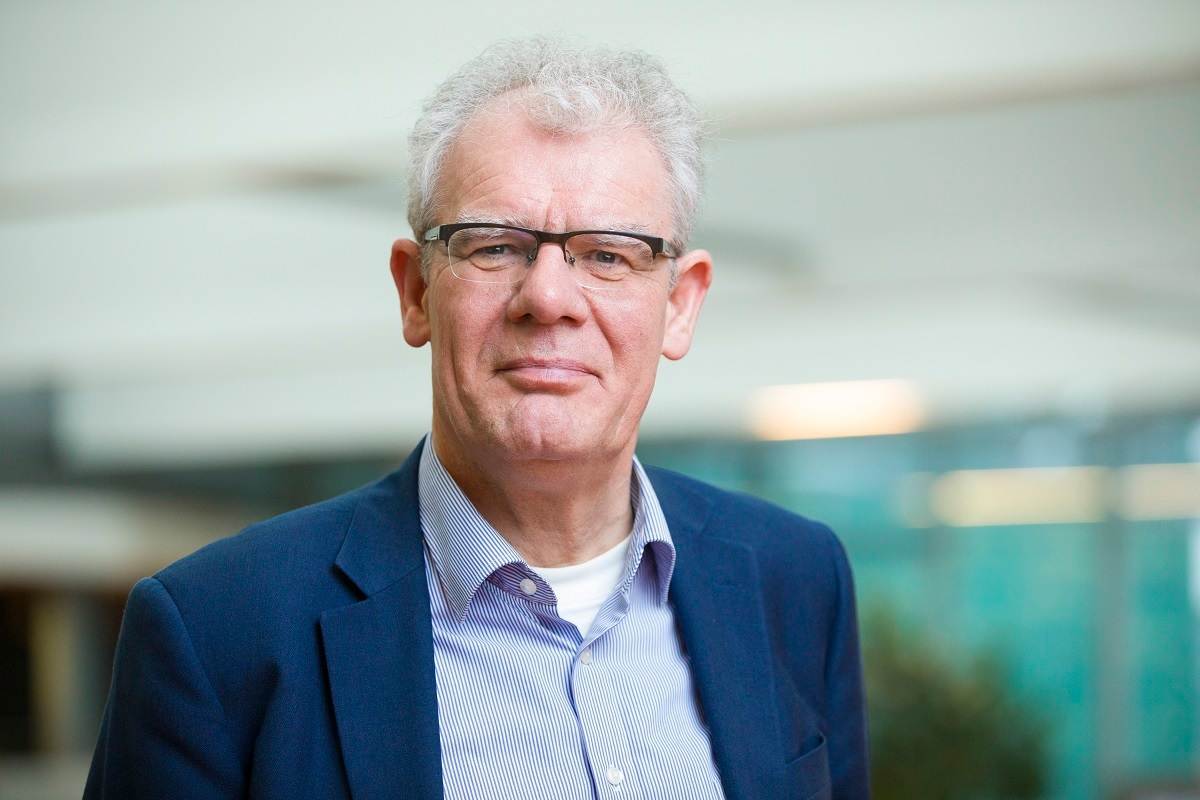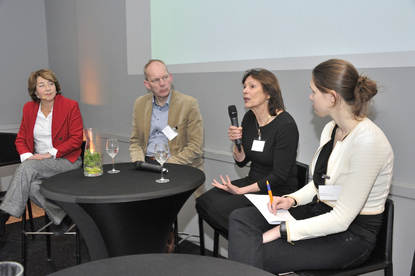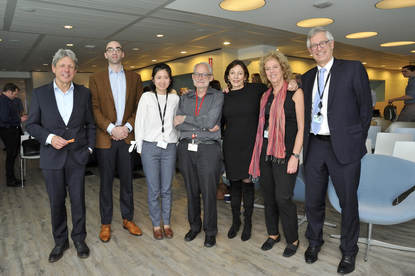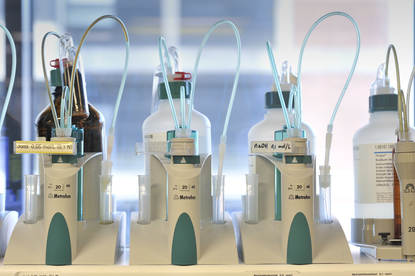The proper assessment of medicines requires research into the regulatory system
Even though Regulatory Science is not the primary task of the Medicines Evaluation Board (MEB), it is still necessary. This is the view of MEB chairman Ton de Boer. "Our primary task is to monitor dossiers and assess medicines. But to do this properly it's important - in addition to research designed to improve the benefit risk assessment - to research the assessment system as well. That allows you to be critical and share this with the outside world.”
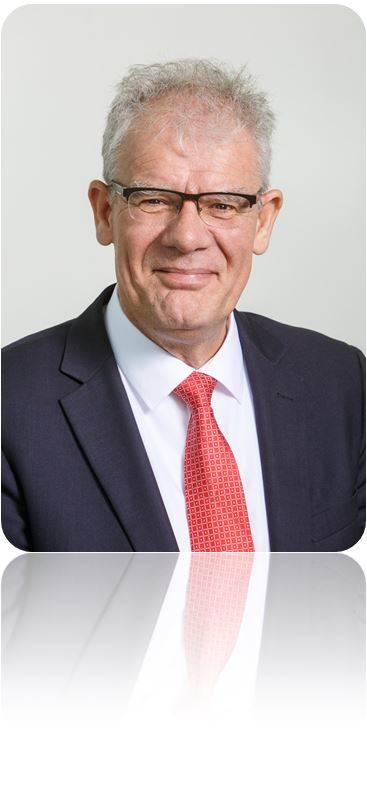
"Regulatory Science is a unique specialist field. Suppose you discover that a clinical trial has not been carried out as it should have been; it is then important, for example, to check whether the regulatory authorities have issued scientific advice during the development process, what the quality of that advice was, and whether it was complied with. You must explicitly use the scientific method in order to ensure that a dossier investigation like this is carried out properly," De Boer explains.
A focus on cooperation
De Boer is happy with the excellent cooperation with, for example, the Dutch universities: "It's essential. You need assistance and know-how to be able to do proper research. The partnership is extremely fruitful. It is also interesting for our own employees, because they can use it to achieve their PhDs. It is also important to collaborate with other medicine authorities and to use each other's data. We are involved with other parties via the Regulatory Science Network Netherlands (RSNN), and we have a public-private partnership. In my opinion these are well structured and the cooperation is really bearing fruit. Ultimately various parties are involved in medicine development, so you have to involve all those parties in any research you do. In the Netherlands this is all going really well."
Performing research in collaboration with the industry
How challenging is the collaboration between the MEB and the industry? De Boer: "There is a certain degree of tension between us and the industry, because we have to remain completely independent. A public-private partnership was organised for the Lygature Escher* project, meaning there is no direct financing from the industry. Public-private partnerships are also a feature of IMI**, with numerous manufacturers and universities working together in a consortium. You have to organise this properly because cooperation with the industry continues to be tricky. As the MEB we always have to be able to assess medicines critically and independently. Our independence is laid down in an agreement and declarations of interest are important at a personal level. One crucial aspect is that there is complete freedom to write an article as you wish to. I think that there are already many safeguards in place which the MEB also uses in order to preserve that independence.
Although the MEB cannot influence the outcomes of studies, we can indicate which end points are clinically relevant and what the optimal structure is for studying the effects of medicines.
Scientific advice for the industry and researchers
The MEB provides scientific advice to the industry. This takes the form of formalised contact between the authority and the company during the development of medicine, in order to examine problems together and assess whether the solutions for these problems have been properly substantiated. This also makes it clear to the industry what they are going to be assessed on and ensures that they know what the underlying idea is. We have been doing this for quite some time now and what we are now seeing is that, in addition to studies sponsored by the industry, universities and hospitals are carrying out studies into medicines more and more frequently as well. The quality of the research protocols of these researchers is not always up to scratch because they are unaware of the regulatory requirements. Researchers have to be better trained in this field and the MEB wants to support them in this. This will produce a dossier which is likely to be more successful when you submit it for authorisation. The MEB is involved in the Netherlands Organisation for Health Research and Development (ZonMw) and, more recently, the Dutch Heart Foundation (Hartstichting) as well. We assist with the initial application and can give advice in advance about the regulatory aspects. That is something I am extremely enthusiastic about and we are also working on it with the Dutch Cancer Society (KWF).
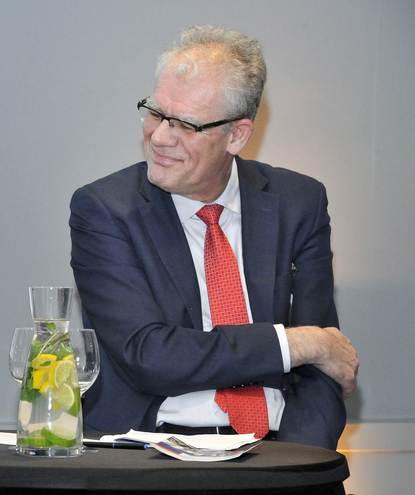
Everyone wants medicines to be developed effectively and efficiently, so you have to have proper knowledge of what the regulatory authorities need. Although the MEB cannot influence the outcomes of studies, we can indicate which end points are clinically relevant and what the optimal structure is for studying the effects of medicines."
At the MEB we believe it is important that it not only results in a publication, but that we can also change the system.
Regulatory improvements
How is the MEB using Regulatory Science to improve regulatory authorisation? "Regulatory authorities have existed since the 1960s. Since then medicines have become safer. However, has the process of authorising medicines become more efficient? I cannot really say with any certainty. That's something that really needs to be researched. One thing I'm sure of is that there is a desire for safety and accuracy. Society doesn't accept risks and that is, of course, tricky in the case of medicines, because all medicines have adverse reactions.
You need scientific techniques to investigate the assessment system and we have to pay sufficient attention to the knowledge we generate and ensure that this ends up in the right places, namely at practical level where people can actually make a difference. I don't know whether we are doing that as well as we should be in the sense that assessment guidelines are actually being adapted on the basis of results of research into the system.
However, one must also show humility because often your contributions are small amounts of knowledge. I think we need to pay more attention to this. A scientist's work is finished as soon as his research has been published. At the MEB we believe it is important that it not only results in a publication, but that we can also change the system.
My hope for the future is that we can exercise more control on this from within the MEB. The Science Policy Committee (Commissie Wetenschapsbeleid) - of which I am a member - plays an important role in this context. This commission is going to set out the general direction, determine what the MEB wants to happen and which studies should be given priority."
Example of regulatory study: male-female differences
The MEB has researched how often women take part in regular medicine research and the results were presented at the MEB Science Day. De Boer: "It turns out that they participate just as often as men. Often slightly more healthy male participants take part in phase 1 studies, but in phase 3 the numbers are identical. The study also revealed that the effects of medicines on men and women are, on average, the same. In fact there are very few examples of medicines which ultimately reveal that women need a different dosage to men. One important factor, however, is that women express or experience their problems differently, particularly in the case of cardiovascular diseases. This has more to do with diagnostics, the identification or non-identification of a certain clinical picture and properly estimating its seriousness. It is not the case that women are not studied and that we have missed certain things."
*Lygature Escher is an independent research platform with a pan-European focus, which aims to bring about a more efficient and effective regulatory system for medicine authorisation. Lygature Escher promotes the dialogue between various parties.
**The Innovative Medicines Initiative's (IMI) ADAPT-SMART is a platform that seeks to establish collaborative solutions, encouraging more efficient ways of developing and regulating medicines in Europe.
